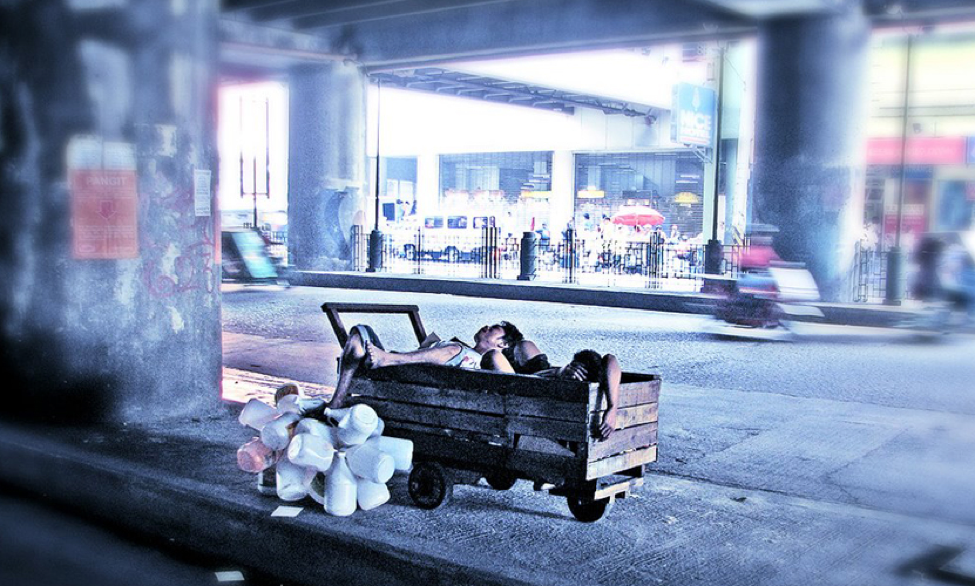
Nationalist People’s Coalition (NPC) Congressman Win Gatchalian called on the Department of Social Welfare and Development (DSWD) to build more halfway houses in the National Capital Region that will provide shelter to the homeless amid accusations that street dwellers in Manila were rounded up to hide them from delegates of the Asia Pacific Economic Cooperation (APEC) summit.
Gatchalian made the call amid reports that personnel of Manila City Hall’s social welfare department brought at least 50 homeless families or around 267 persons to the Boystown in Marikina. The Boystown was originally a center for juvenile delinquents, which was built and established by the City of Manila in the 1960s.
“The DSWD should build halfway houses all over Metro Manila,” said Gatchalian, a senior vice chair of the House Committees on Metro Manila Development and on Housing and Urban Development. “In Valenzuela, we have a Bantay Kalinga to house street sellers and the homeless.”
Gatchalian pointed out that increasing the number of such institutions will ensure that there will be no overcrowding and that each homeless will be adequately taken care for and that enough resources will be extended to each occupant.
International group Human Rights Watch said at least 141 street children were “detained” in Boystown as of Nov. 10 to tidy up Manila for the week-long APEC summit which ended Friday (Nov. 20).
DSWD Secretary Dinky Soliman was quoted by media reports as saying that those taken off the streets have the chance of being included in the Modified Conditional Cash Transfer Program, in which street families are given a house rental assistance of up to P4,000 per month for six months to a year.
Gatchalian maintained that the best way to keep vulnerable, homeless families off the streets is to give them permanent shelters.
“If the DSWD is really committed to serving the Filipino people, it would effectively protect homeless families from harm on the streets by giving them permanent shelters, not by taking them off the streets on selected dates, when there are visits by foreign dignitaries. What does this say about agency that should prioritize social welfare and development, as its name suggests?,” the NPC congressman explained.
Gatchalian suggested that DSWD partner with local government units (LGUs) in giving indigent families permanent homes. “If the DSWD is going to spend precious taxpayers’ money anyway, better spend it on something that would leave a long-term impact on the lives of the poor.”
Gatchalian cited Valenzuela City’s Disiplina Village housing project, whose foundation he helped lay when he was city mayor in 2010.
The project seeks to relocate poor families living in danger-prone areas, including settlements near riverbanks, esteros, waterways, under the bridges, sideways, and aqueducts. For as low as P300 monthly, these families can lease condominium-type units.
The housing project, which targets zero informal settlers by next year, involves partners from both the public and private sector namely the National Housing Authority, Gawad Kalinga, San Miguel Foundation Corporation, Dakilang Handog Foundation, Valenzuela Business Club, and Filipino-Chinese Valenzuela Chamber of Commerce.
Valenzuela City’s Disiplina Village is the first resettlement project to be initiated by an LGU and is the biggest in-city low-rise building relocation program in the country at present.
Gatchalian has previously explained that while the 4Ps (Pantawid Pamilyang Pilipino Program) is a long-term solution, there have to be efforts by government to address poverty in the short-term and the medium-term.
“Millions of Filipinos cannot wait an entire generation for long-term poverty alleviation programs such as the conditional cash transfer program to bear fruit or for economic growth to trickle down on them. Our fellow Filipinos need relief – not in 30 years, not in 20 years – they need relief now,” said Gatchalian. (Monica Cantilero)


